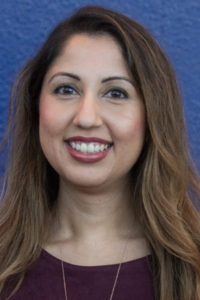
When Roozehra Khan, DO, FCCP, received an email from CHEST about applying for a section editor position for the journal CHEST®, she was hesitant to apply for the position at first because she only met a few of the skill requirements. But, she applied anyway and got the job because of the potential the employer saw in her. Dr. Khan, who runs @TheFemaleDoc blog on Instagram, emphasized that women need to believe in their skills during the session Challenges for Women in Medicine on Tuesday.
Dr. Khan specifically addressed the imposter syndrome that many women face. Imposter syndrome is a concept describing high-achieving individuals who are marked by an inability to internalize their accomplishments and a persistent fear of being exposed as a “fraud,” she said. It’s not gender specific, but women tend to experience it more intensely and are more limited by it.
In a study from 2002 of surgical residents, female students underestimated their mid-clerkship performance compared with male students on a surgery rotation, but overall the female students over performed the male students.
“The irony in all of this was that the faculty rated all of the female medical students as superior to the men,” she said. “That was statistically significant, so it makes the finding of the women students underestimating their performance even more powerful.”
Dr. Khan noted that imposter syndrome can be linked to self-esteem measurements and anxiety, and emphasized that this topic needs to be continually studied and talked about, since there aren’t many good studies or data that show how to combat the syndrome, especially around women.
“However, I really love the entrepreneurial viewpoint of imposter syndrome,” she said. “Entrepreneurs just jump off a cliff and build a parachute on the way down. We’re all very high-achieving individuals. We all went into a very difficult industry in health-care. We’re all very capable of doing whatever we want really. You’re an expert in your field, and you don’t need to be 100% qualified to feel like you’re actually a successful physician.”
Dr. Khan showed a New York Times article about Facebook COO Sheryl Sandberg that stated Sandberg was wickedly smart, but she also was lucky to be in that position because she has had powerful mentors along the way, and she was married to Dave Goldberg, a successful entrepreneur and CEO of Survey Monkey.
“You don’t see these types of descriptions with male leaders and male CEOs,” she said. “The system and society also perpetuate the thoughts that we have in our own head, and I wanted to point out that this type of bias isn’t just for men. Women are just as susceptible to subconscious bias as men. The NYT article was written by two women.”
Following Dr. Khan’s speech, Stephanie M. Levine, MD, FCCP, president-elect of CHEST, and program director of pulmonary and critical care fellowship at the University of Texas Health – San Antonio, dove into “breaking the glass ceiling.” Women are 13% less likely to get promoted to professor, they have less research funding and production, and their salary is 21% less than men. She mentioned a few possible reasons why women lag behind in gender specialty parity including lack of same gendered mentors, and she mentioned that women may lack behind in advancement partially because they aren’t as good of negotiators. But women often have better collaborative skills, more compassion, and more empathy, she said.
“How can we improve these gaps?” she questioned. “Many institutions now have diversity and inclusion officers, formal education on bias, particularly on implicit bias, training the gatekeepers, meaning training and educating a search committee who is looking to fill a new position.”
Dr. Levine wrapped up with a few take-home points for women.
“Get involved and stay engaged,” she said. “I’m not just talking about CHEST here—get involved in your division, in your community, in your workplace. Find a mentor or sponsor. Apply for appropriate committees at work or in your professional societies, self-nominate, seek nomination and help try to nominate others. Be a strong advocate for yourself.”
Margaret Pisani, MD, MPH, associate professor of medicine at the Yale School of Medicine, took a deeper look at mentors and sponsors. Mentors really can be at any level, she said. They are often selected for their content expertise and often work behind the scenes. Sponsors are people who are typically higher placed in an organization, so they can help put your name out there and help get you promoted and work as your advocate. Mentorship and guidance are often needed to get to the next level, she said, and women not advancing in medicine could be attributed to women not having available mentors.
Dr. Pisani also brought up a recent study from the New England Journal of Medicine about men being scared to mentor women in the #MeToo era and how that is going to impact women in academic medicine.
“The majority of men are still in the higher positions,” she said. “We need men to feel comfortable sponsoring women and promoting women until we get women into the top levels.”





